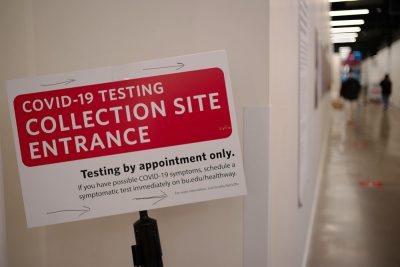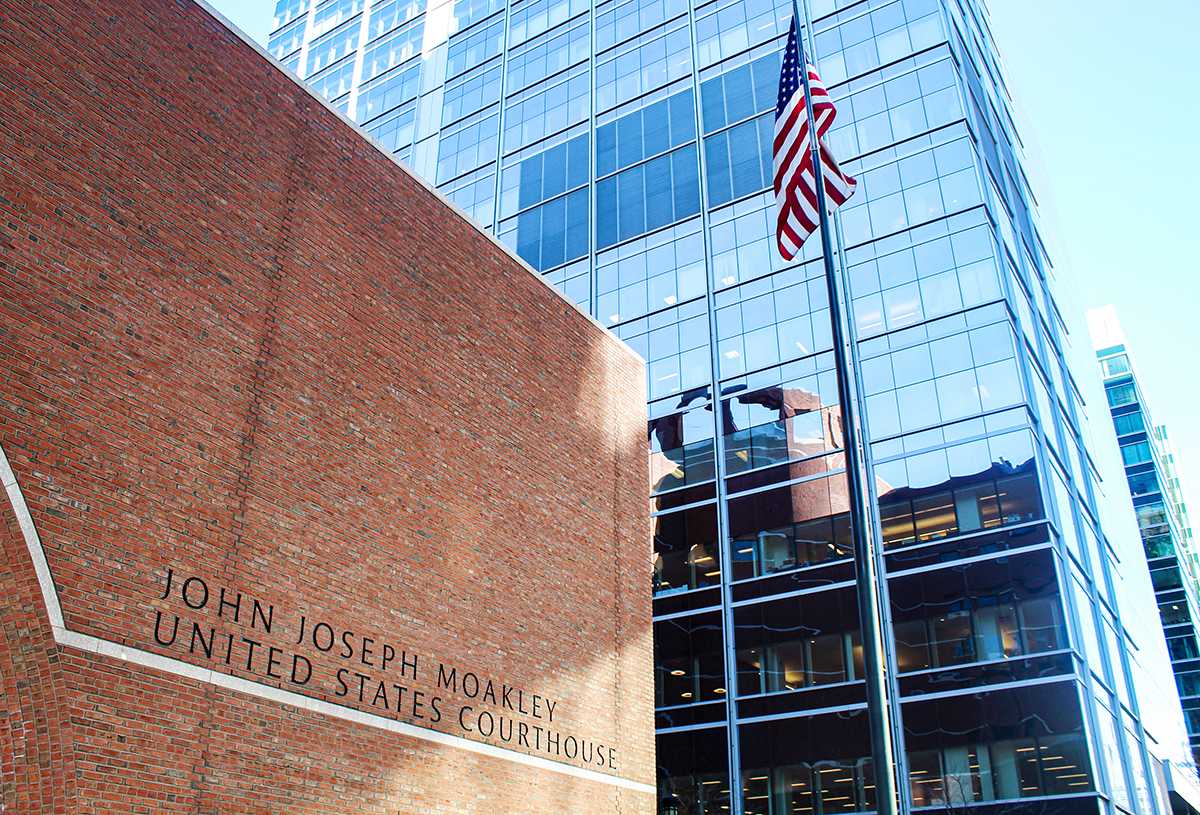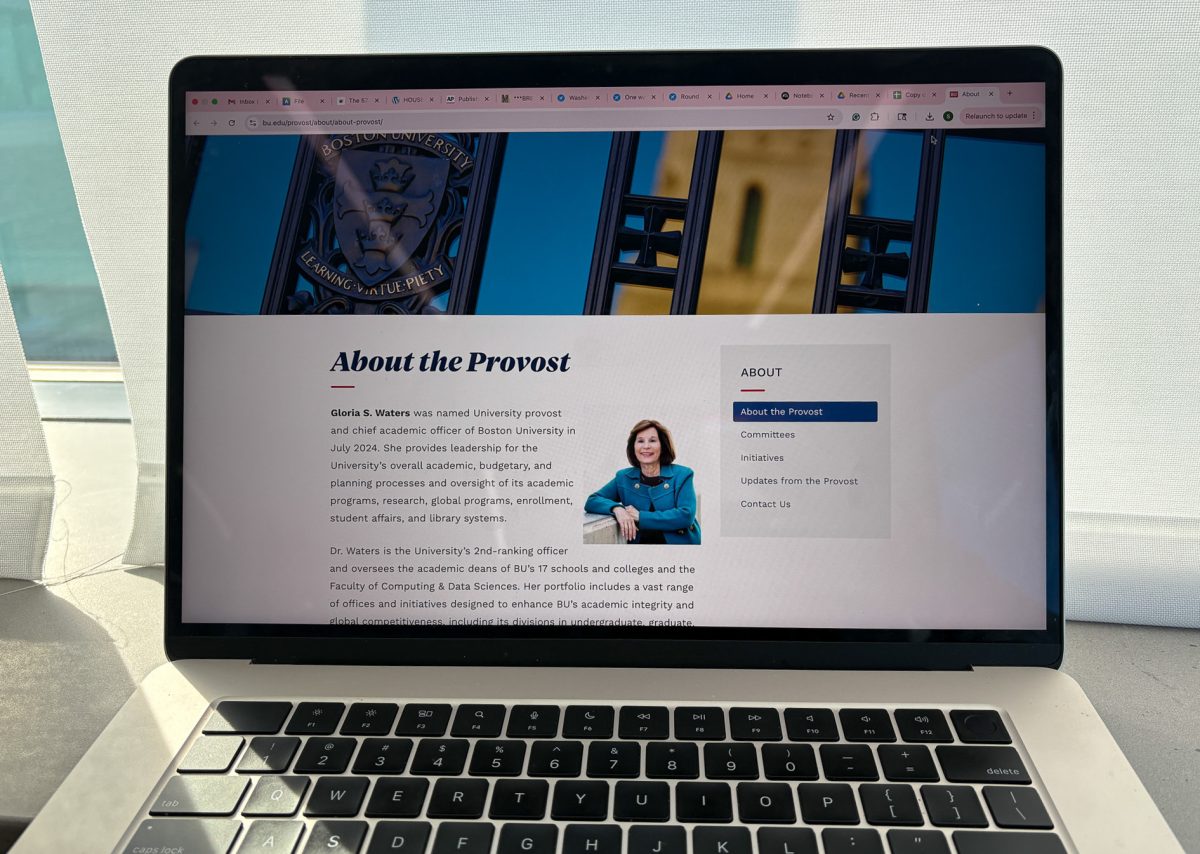Boston University reported 143 COVID-19 cases Tuesday with a positivity rate of 2.82% — the highest number of cases since the peak of the omicron variant in January.

In a Thursday email, Judy Platt, chief health officer and executive director of BU’s Student Health Services, said the University anticipated an increase in cases prior to the summer months.
“More people are traveling and gathering than ever,” Platt wrote. “Large events are occurring and mask mandates and physical distancing have ended in most places. In addition the omicron variant is more transmissible than previous variants so it’s a perfect setting for increased transmission.”
Platt added that the BA.2 variant — a subvariant of omicron, now the dominant variant worldwide — is “at least partially to blame” for the rise in cases due to its demonstrated increased transmissibility. The variant accounts for over 80% of BU’s cases, she noted.
“We expect this percentage to rise,” Platt wrote.
The rise in cases is not unique to BU but follows a larger regional pattern. In Philadelphia, mask mandates have been reinstated for indoor spaces following an uptick in cases. The Centers for Disease Control has also extended its travel mask mandate until May 3.
“While being up to date with COVID-19 vaccination has been critical to reducing the risk of severe illness and death, immunity does wane over time and even boosted individuals can contract COVID-19,” Platt wrote, noting there is no evidence of workplace or classroom transmission.
For many, the increase in cases comes with a certain frustration.
“We’ve been in the pandemic for a couple years now,” said Perry Sosi, a junior in the College of Fine Arts. “It’s annoying because it feels like we’re about to cross over back into normalcy.”
Some students said they were not worried about the recent trend.
“I’ve seen a few people around me get COVID in the past few weeks, but I feel like overall, it [COVID-19] is at a lower level. So it’s not something I’m too worried about,” said Saarim Shakaib, a sophomore in the College of Arts and Sciences.
Over the course of the semester, the University has gradually eased back its COVID-19 measures as case counts remained low. BU’s positivity rate has hovered at approximately 1% since early February, though cases have been steadily increasing since mid-March.
The University will no longer test its campus population weekly nor require mask-wearing in classrooms after this semester’s last day of classes, May 13, it announced late March.
“At this time we are not planning on reinstating a more extensive mask mandate, but we are following our data closely and will consider additional protocols depending on the ways in which the virus is being transmitted on our campus,” Platt wrote Thursday.
Some students said BU should stay on track to lift its classroom mask mandate once the semester ends. However, Sophia Caffrey, a freshman in the Questrom School of Business, said weekly testing should continue into Fall 2022.
“It depends on rising COVID cases,” Caffrey said. “If they’re rising, I think that people should stay safe and keep testing.”
Caffrey added the decision to wear masks in classes should be left up to faculty and evaluated on a case-by-case basis.
“It should be up to the professor to figure out what their level of comfortability is, because I know some professors have families that are immunocompromised,” Caffrey said.
Perry Sosi is a staff photographer at The Daily Free Press. He was not involved in the editing of this article.






























































































































